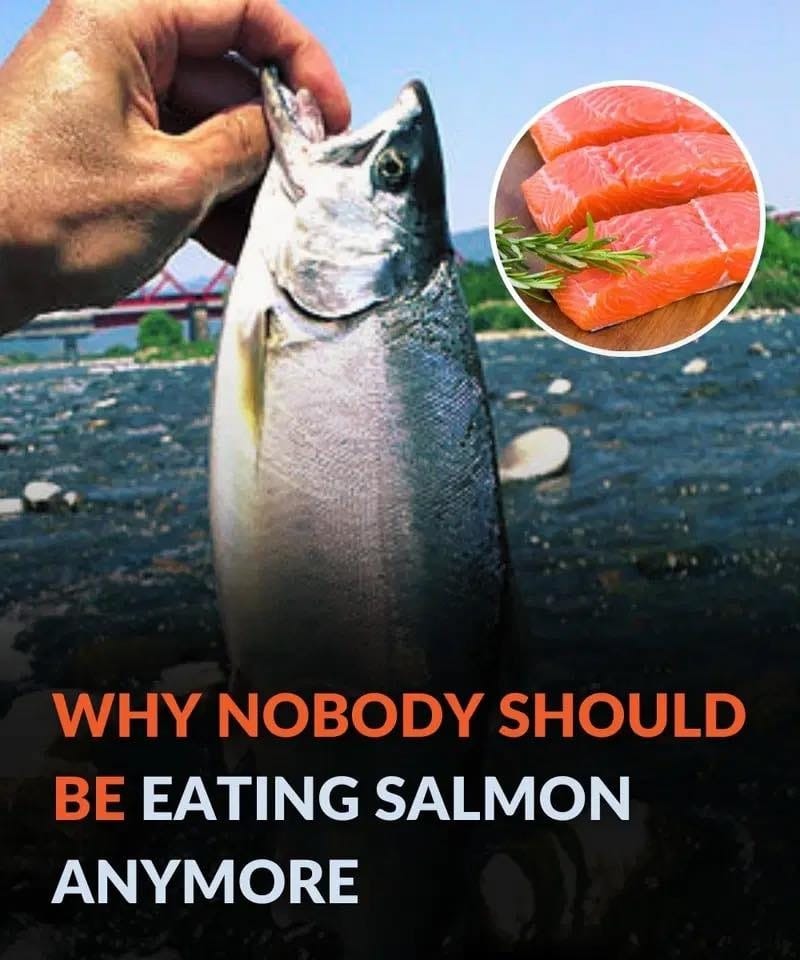ADVERTISEMENT
### **The Potential Risks of Eating Salmon**
While salmon offers numerous health benefits, there are some concerns about its consumption that are important to consider. Over the years, various studies have raised red flags regarding the quality of salmon, particularly farmed salmon, and the environmental impact of its production.
#### 1. **Farmed Salmon vs. Wild-Caught Salmon: The Quality Divide**
One of the primary concerns surrounding the consumption of salmon is the difference between **farm-raised** and **wild-caught** varieties. Farmed salmon is raised in controlled environments where they are often fed a diet that differs significantly from what they would consume in the wild. This diet, which is often composed of processed fish feed and sometimes includes antibiotics and chemicals, can affect the nutritional profile and quality of the fish.
– **Higher Contaminant Levels**: Farmed salmon may have higher levels of **toxic chemicals**, such as **PCBs** (polychlorinated biphenyls), **dioxins**, and **pesticides**, which are sometimes used in fish farming to prevent disease. These contaminants can accumulate in the fat of the fish, and studies have shown that farmed salmon can contain up to 10 times the amount of toxins found in wild-caught salmon. Prolonged exposure to these chemicals has been linked to various health issues, including cancer, reproductive problems, and developmental delays in children.
– **Antibiotics and Chemicals**: In order to prevent disease in crowded farmed environments, farmed salmon are often treated with antibiotics and chemicals. Some studies have raised concerns about the overuse of antibiotics in farmed salmon, which could contribute to the growing problem of antibiotic resistance. The use of chemicals like **copper sulfate** and **formaldehyde** to treat the water and fish can also have negative environmental consequences.
– **Lower Omega-3 Content**: While farmed salmon still contains omega-3 fatty acids, it generally has a lower amount than wild-caught salmon. Additionally, farmed salmon may have a higher amount of unhealthy omega-6 fats, which can contribute to inflammation when consumed in excess.
#### 2. **Environmental Impact of Salmon Farming**
In addition to the health concerns, the environmental impact of salmon farming is another significant issue. Salmon farms are often located in coastal areas where they can cause significant harm to local ecosystems. The concentrated farming practices lead to **pollution** in the surrounding waters, as waste from the fish (including uneaten feed, feces, and chemicals) can accumulate and disrupt local ecosystems.
Furthermore, farmed salmon operations often rely on wild fish to create fishmeal and fish oil for feed. This practice can put additional pressure on already overfished wild fish populations. In some cases, fish farms use feed made from wild-caught fish such as herring and anchovies, which could be better utilized in supporting the food chain for other marine species.
For Complete Cooking STEPS Please Head On Over To Next Page Or Open button (>) and don’t forget to SHARE with your Facebook friends
